Obtaining documents of a stateless person. Who is a stateless person: rights, restrictions
Apolidism, or apatrism, is legal status person when he is not considered a citizen of any country. A stateless person is stateless if he voluntarily renounced the status or lost it without acquiring a new one. internal passport.
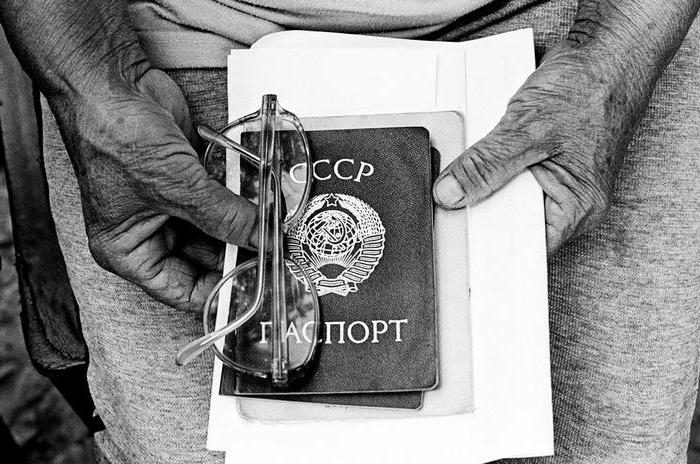
Stateless persons have only limited rights, compared to residents who have documents confirming their connection with the state in whose territory the stateless people are located. So, only those who have a passport of the Russian Federation can participate in elections, referendums, and hold positions in the public service. The absence of the status of a Russian citizen will also not allow you to receive diplomatic protection.
Legal status of apolidism
Basics international law There are two types of statelessness:
- absolute, that is, arising from birth;
- relative - formed as a result of the loss of the status of a citizen.
This phenomenon is one of the legal anomalies modern world. Therefore, many states, including the Russian Federation, are fighting it and are trying in every possible way to reduce it.
But stateless persons, according to fundamental international principles, cannot be left without the right to life, a name and other personal rights. The status of a stateless person is determined by the legislation of the country in whose territory he resides. It is the duty of any state to respect basic rights and the possibility of ensuring a normal life, despite the fact that a stateless person does not have internal documents. In the Russian Federation, the status is in fact equated to foreigners with the only difference: a stateless person cannot receive protection from a diplomatic mission.
The absence of an internal passport of the country in which the person lives makes it possible to avoid military duty, but also poses serious restrictions in the professional sphere and political environment.
Legislation on the institute of apatrism
Sources of international law related to securing the status of a stateless person describe in some detail the position of a stateless person. But Russia did not take part in any of the conventions or declarations on this issue. As a result, the Russian Federation is limited exclusively by internal norms and customs. For example, in Russia it is impossible to leave a child born on the territory of the Russian Federation in the status of a stateless person. That is, newborns with stateless parents can legally obtain the status of a Russian. This norm is determined by the Federal Law "On Citizenship of the Russian Federation".
In practice, international conventions are being implemented that define the rights and obligations of a stateless person, the possibility of obtaining this status and acquiring an internal passport and other documents in any state.
First of all, jurists include:
- the Convention relating to the Status of Stateless Persons;
- Convention on the Reduction of Statelessness.
The first legal act was created in 1954. His main task was not so much the elimination this status in principle, but rather, fixing at the legislative level the optimal regime for this category of citizens. The Convention made it possible to create documents around the world that regulate the social relations of stateless persons in the state on whose territory they are located, with public entities, organizations, and citizens of this country. First of all, it concerns aspects of how to get an education and find a job.
In a state that is a party to the Convention, a stateless person must receive all the rights enjoyed by foreigners. It is even possible to improve their position and status, in comparison with citizens foreign countries. Articles 4, 16, 22 and 24 require the authorities to grant in the territory of the state a number of inalienable rights to:
- elementary education
- social Security;
- appeal to the judiciary to protect their freedoms and interests;
- freedom of conscience and religion, the possibility of providing children with religious education.
Measures to address the legal consequences of statelessness
International legal treaties provide for a number of measures aimed at minimizing negative consequences associated with apolidism.
In addition to the above, the following conventions play an important role:
- about a woman's marriage;
- European Convention on Nationality.
Provision of the 1961 Convention
The content of the agreement defines a number of principles and requirements in relation to the regulation of the institute of apatriism on the territory of the participating country.
- If a person born on the territory of the state has the risk of remaining an absolute stateless person, on the basis of the soil principle, the child must receive the status of a citizen, and in the future, an internal passport (Article 1).
- A child abandoned by parents found on the territory of one of the contracting states is considered to be born of citizens of the country, unless there is evidence to the contrary (Article 2).
- The authorities provide an opportunity to obtain internal documents to a person born outside the territory of the country, if one of the parents on the day of registration of the fact of birth is a representative of the society of this state (Article 4).
- Voluntary renunciation of a passport by a citizen cannot cause a complete loss of citizenship, except in cases where a person already has or is about to enter into a new citizenship (Article 7).
- The parties to the Convention cannot cancel a person's passport if this entails the consolidation of the status of "stateless person" (Article 8).
Such a category of residents of the state as a “stateless person” today constitutes a rather wide circle of people who, on the one hand, cannot enjoy all the rights of ordinary citizens, and on the other hand, must obey the current legislation. At the same time, they retain all human rights, but the privileges of a citizen are significantly curtailed.
From the standpoint of jurisprudence, we can say that stateless persons are residents of a country who do not have citizenship of any of the states known on the world map. At the same time, absolutely any person can fall into the category of so-called stateless persons on a voluntary basis or due to some insurmountable circumstances.
Possible reasons
It would be useful to know what could be the reason that a newborn inhabitant of the planet will not receive civil status or will lose it at a more conscious age:
- a stateless person is called so when he is born from stateless parents, if at the same time the law of the soil does not apply in the country of his birth, and he does not automatically become its citizen. This case occurs most often;
- in case of voluntary renunciation of citizenship to any state. When the procedure for renunciation of citizenship is completed, the applicant is required to surrender his passport, which immediately classifies him as stateless. Usually people stay in this position for a short period of time, and therefore they can be considered temporary stateless, since after leaving one citizenship they immediately seek to enter another. More about changing citizenship;
- Another way to become stateless is to lose it. Most often, the reason for this is the desire of the state to protect its inhabitants from a dangerous individual, whose presence in society can pose a threat to life and health. The usual consequence of such a decision is expulsion from the country. Read more about expulsion;
- as a result of revealing the fact of fictitiousness of the main legal procedures. A striking example is a fictitious marriage. In this case, the violator is not only deprived of his civil status, but also of all the privileges that he bestows;
- there is a fairly well-known way to obtain the status of a stateless person due to the disappearance of a state with political map peace. As good example can lead to decay Soviet Union into several independent states, each of which provided residents of their regions with the opportunity to go through the procedure for entering a new citizenship automatically, according to a simplified scheme. But even today there are still people who have not changed their Soviet passport for a certificate of a citizen of one of the former republics. And since the country that issued them the Soviet-style document no longer exists, they can rightfully be considered stateless.
At the same time, the international convention states that refugees cannot be included in the category of “stateless people”.
What rights can stateless persons enjoy?
Despite the lack of a clear civil status, most of countries still does not try to deprive such residents of the fundamental rights that citizens of the state can enjoy. A few restrictions include:
- inability to participate in elections;
- hold important positions in state structures;
- to serve in the military.
As for the positions held, this list is actually not limited to only bureaucratic positions. Stateless persons cannot become aircraft pilots or captains sea vessels. As for their universal human rights, in this respect they do not experience any discrimination from the side of the law. Let's say they can equally receive an education, use medical services or realize their professional potential in their specialty. 
According to the laws of the Russian Federation
Speaking specifically about Russian Federation, then in our country the rights of stateless persons are limited by the inability to participate in political associations and parties. In addition, they cannot hold positions that involve keeping secrets. By special order, the authorities may at any time impose restrictions on their internal movements.
On the other hand, a stateless person can safely travel abroad Russian border but only for a strictly limited period of time. Moreover, when applying for a job in some rare specialty, a stateless person will be given preference over an ordinary citizen if the latter does not have the necessary diploma and stock of knowledge.
At the same time, the Russian state is distinguished by its special loyalty to residents with this status, which cannot be said about other countries. What does a stateless person mean, for example, in the USA? This is not a fully-fledged member of society with rather curtailed rights.
It should be noted that the procedure for expanding their rights by stateless persons is complicated by bureaucratic formalities and the imperfection of laws. So, in order to obtain the status of a temporary resident of the country, it is necessary to present a migration card, which stateless people do not have. For its part, this makes it impossible to obtain a residence permit and move on to further stages of legalization. Kind of a vicious circle.
Thus, in many respects, the position of these residents of the country resembles the status of foreigners who are also not endowed with Russian citizenship.
What can confirm the identity of a stateless person
As a rule, a person who does not have any citizenship does not have the usual documents for other citizens - a passport and a certificate issued at birth. It is quite logical to assume that there must be some other papers that can still verify the identity of the bearer. These include:
- a document that is an identity card, but was issued in another country;
- permission to temporarily stay in this state;
- resident card;
- any other document which has received official recognition in the territory Russian state. For example, certificate d'apatrid.
It is obligatory for a stateless person to have a document that could confirm his identity.
An exhaustive description of the rights and obligations of stateless persons can be found in Article 109 of the Law on Migration Registration.
How to get a Russian passport for a stateless person
The path of legalization of stateless persons in the Russian Federation is not easy and is particularly long. In order to replace a stateless person's passport with a Russian one, it is necessary to meet a number of requirements:
- have a source of legal income;
- not be judged;
- live in the Russian Federation for several years legally.
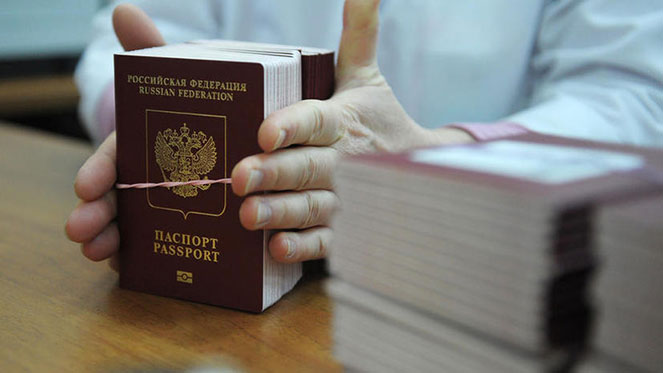
Having found out the name of a person without citizenship or citizenship, let's move on to the question of how the process of his naturalization in Russian society will look like.
The process can be divided into several stages:
- migration registration;
- registration;
- getting a passport.
The legalization process is underway general order through the immigration department. Before proceeding to any of the above steps, the service staff will certainly verify the identity of the applicant. In particular, whether he was expelled from the country.
Separate consideration requires obtaining the status of a stateless person by residents of Crimea who intend to change their Ukrainian passport to a Russian one. According to a special order, all persons who lived on the peninsula at the time of the recognition of Crimea Russian territory could obtain Russian citizenship automatically. Today, citizens of Ukraine, including stateless persons, must confirm the presence of a residence permit in the Crimean territory and go through the standard legalization procedure, albeit in a simplified manner, bypassing the stage of permanent residence.
Citizenship refers to a stable relationship between a country and a person. In exchange for protection, various freedoms and rights, a person pays taxes to the state, serves in the army and honors the letter of the law. According to the latest amendments to the legislation, today it has become possible to obtain Russian citizenship by a stateless person.
Every individual, even those who do not have citizenship, can become a full member of our state. To do this, he needs to go through several stages. People in the process often encounter serious difficulties, and the situation seems to them a dead end. In order to avoid unnecessary fuss and anxieties, persons wishing to receive Russian citizenship, it is recommended to enlist the support of a highly qualified lawyer.

So says the law
According to the existing legislation, foreigners and stateless persons permanently residing in Russia can now become citizens of our state through a simplified procedure. They have the right to submit an application form for admission to citizenship without meeting the requirements for the period of stay in Russia. In doing so, applicants undertake to follow the following rules:
- The presence of at least one parent - a citizen of the Russian state (he must permanently reside in the territory of our country).
- The presence of citizenship of any country that was previously part of the USSR.
- The presence of higher education received in Russian university after 07/01/2002.
Step forward
In 2014, the dream of many citizens of the countries came true former USSR, longing for the times when the country was "common and immense." At the meeting of the Government of the Russian Federation, held on March 06, 2014, a draft of a new federal law was considered. According to this project, those foreigners and stateless persons who are native speakers of the Russian language can count on a simplified procedure for submitting documents.
Also, highly qualified specialists, those citizens who once graduated from Soviet universities, and persons who have worked in the territory of the Russian Federation for at least 3 years, can also submit documents in a simplified manner.
According to the Prime Minister of the Russian Federation, the recognition of foreigners and stateless persons as carriers state language will be carried out by members of a special commission. The final verdict will be made after an interview with the applicants. Every person successfully interviewed, will be able to obtain a special visa to enter the territory of the Russian state. After that, he will be able to issue a residence permit. For this, the applicant does not need to obtain a temporary residence permit.
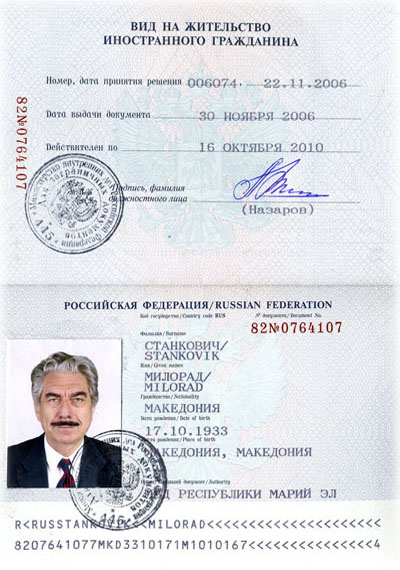
This is how a residence permit for foreigners and stateless persons looks like
The deadline for making a final decision on the applications of this category of persons is today 90 working days. The most important condition for admission to citizenship of the Russian Federation is the renunciation of previous citizenship.
According to statistics provided by the Federal Migration Service of the Russian Federation, a little more than half a million citizens of Kyrgyzstan and other former Soviet republics have become Russian citizens to date.
Many "native" Russians are skeptical about this innovation. In their opinion, today, when the level terrorist threat higher than ever, allowing citizens of Asian republics to become citizens of the Russian Federation under a simplified procedure is not quite the right decision.
Memo to those wishing to become citizens of the Russian Federation
Obtaining the citizenship of the Russian state for a person who is a stateless person is a rather delicate process. There are many complex and controversial situations. In general, the instruction for obtaining Russian citizenship for persons in this category is represented by three stages:
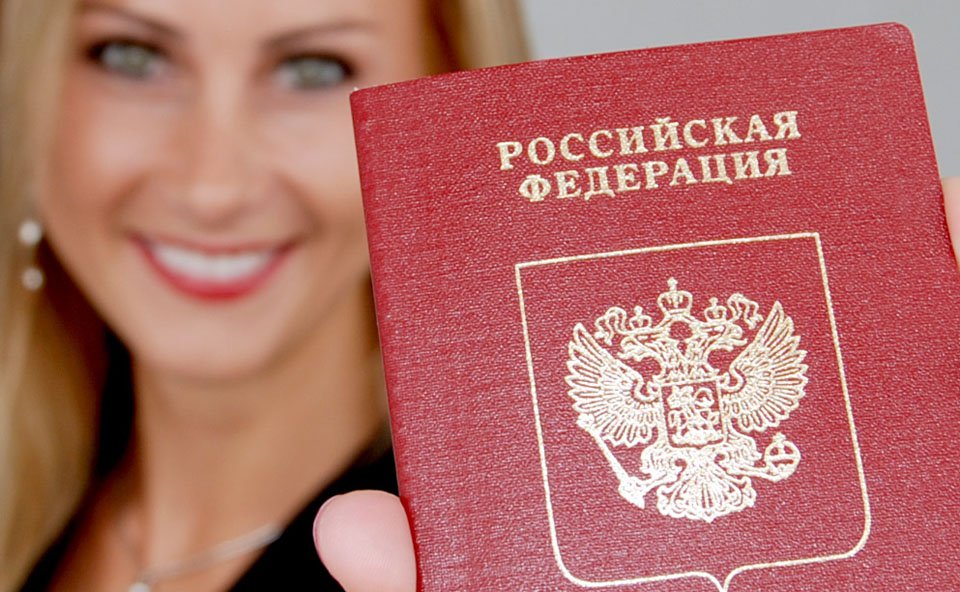
- Confirmation of the fact of residence on the territory of the Russian state for a five-year period.
- Belonging to one of the preferential categories.
- Providing a package required documents to the regional branch of the Federal Migration Service.
Stage one
This stage, which is necessary for obtaining Russian citizenship, is primarily relevant for persons without citizenship. Staying on the territory of the Russian state is considered continuous only when a person has not left the state for more than 90 days every year for a five-year period.
The period of residence can be counted from the completion of the registration procedure at the location. Do not ignore the procedure for obtaining this important information. Also, a person who wants to take Russian citizenship undertakes to confirm the fact of legal employment and good command of the state language.
Sometimes the period of five years of residence is reduced to 12 months or even removed. This is relevant for:
- persons who have distinguished themselves before the state by special merits;
- persons who have high achievements in the scientific, technical and cultural fields;
- people whose professional activities are of interest to the state;
- persons in need of protection from persecution;
- persons with refugee status;
- contracted employees (the term of service must be at least three years).
Stage two
The following people are eligible for citizenship without a five-year residence period:
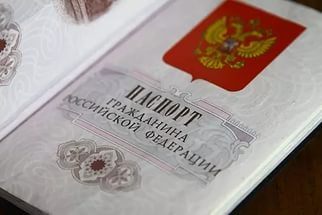
- born in the USSR and who did not receive citizenship of any of the sovereign states after its collapse;
- having a disabled child who is a citizen of the Russian state (the second parent must also be disabled or absent);
- disabled persons who are dependents of citizens of the Russian Federation;
- legally married to subjects of the Russian state (more than three years);
- who are WWII veterans.
Stage three
A stateless person who wishes to obtain Russian citizenship undertakes to come to the territorial division of the Federal Migration Service and submit the following documents:

- passport (it can be replaced by any other certifying document);
- application form in two copies;
- two high-quality photographs;
- a receipt certifying payment of the state fee;
- a certificate certifying citizenship of the Soviet Union in the past (passport of the USSR);
- WWII document.
Also, employees of the FMS may ask to present other documents. The list of references needs to be clarified in advance.
Features of the simplified procedure
In the list of persons wishing to obtain Russian citizenship in a simplified
- citizens of Kyrgyzstan, the Kazakh state and Belarus;
- members of the Compatriot program;
- owners of an individual enterprise that has been operating on the territory of the Russian state for at least three years (annual profit must be at least 1 million rubles);
- persons capable of investing in the economy (the share of the contribution is from 10%).
Today, stateless persons are large group people in the Russian Federation, whose rights and freedoms are described in the article of the legislation N 109 - FZ "On". Stateless persons are individuals who do not have the status of a citizen of any country. Despite the fact that stateless persons are not recognized as full citizens, they are obliged to obey the current legislation of the host country. Stateless persons (or stateless persons, as they are often referred to in narrow circles) are endowed with all human rights, but still do not enjoy the basic privileges of a full citizen.
Reasons for the lack of citizenship status for stateless persons
Law N 109 - FZ describes in detail the issues of migration in Russia. Almost anyone can become stateless entity victim of circumstance. You can be in such a position both voluntarily and against your will. And in order to avoid such a situation, it is necessary to know the main reasons why individual may not receive citizenship at birth or lose it at a conscious age.
- At birth. If a child is born to two stateless parents, in most cases he is ordered to become stateless. This is the most common reason for the appearance of stateless people. This rule does not work only in cases where the country has the right of the soil, thanks to which a person can receive citizenship by birthright.
- With a deliberate refusal to obtain citizenship. If an individual voluntarily renounces the status of a citizen of a certain country, upon completion of all formalities, such documents as a passport and birth certificate are confiscated from him - after that, this person automatically becomes stateless. This category is often referred to as "temporary" stateless persons, since immediately after the refusal they seek to obtain the citizenship of another country. Stateless persons from this category in most cases want to have two passports at once, but due to legal restrictions, they have to renounce their previous citizenship.
- In the process of deprivation of citizenship. Often, the state forcibly deprives an individual of citizenship, motivating this with the necessary conservation measures. national security etc. Usually, immediately after such a procedure, a stateless person is expelled from the country.
- In the process of deprivation of all privileges based on a certain legal process. In most cases, this is exposure, after which the provision of legislation on a “void transaction” immediately comes into force - all transactions and legal statuses accompanying marriage are canceled.
- With the disappearance of the state. Most a prime example is the collapse of the USSR. Usually former countries The USSR issued bills allowing stateless persons to obtain new citizenship under a simplified scheme, but even under such circumstances, many citizens of the former USSR still do not have a valid passport.
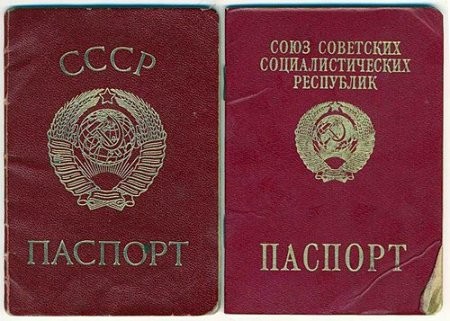
Oddly enough, but a citizen of the former USSR is also called a stateless person, and not every state seeks to provide him with his passport. Even in Russia, a country that is rightfully considered the successor to most of the territories of the former USSR, former Soviet citizens have some problems obtaining a passport. Yes, in some cases for residents former Union a simplified scheme for obtaining a passport is provided, but this is far from a solution to the problem.
For example, the most important document for issuing a temporary residence permit is a valid migration card, on which the border or migration service employees made certain marks. Not every representative of the former USSR has such a document, so a certain legal vacuum is created, which creates considerable problems for stateless people.
Legal status of a stateless person
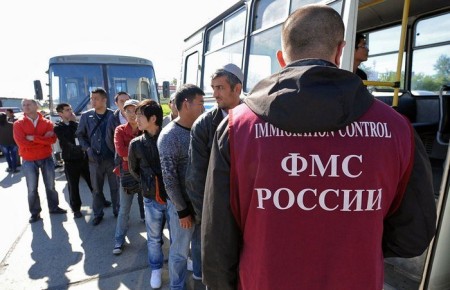
Legal capacity requires separate consideration foreign citizens and stateless persons. In most countries, stateless people have a full legal status and can enjoy almost all rights, except the right to participate in elections, run for high-ranking public office and serve in the army. Besides, legal status a stateless person does not make it possible to occupy some positions that are not related to politics - for example, to become a crew commander on an airplane. In other aspects, a person deprived of citizenship is accepted for general provisions- can receive education and work under the conditions of official employment.




